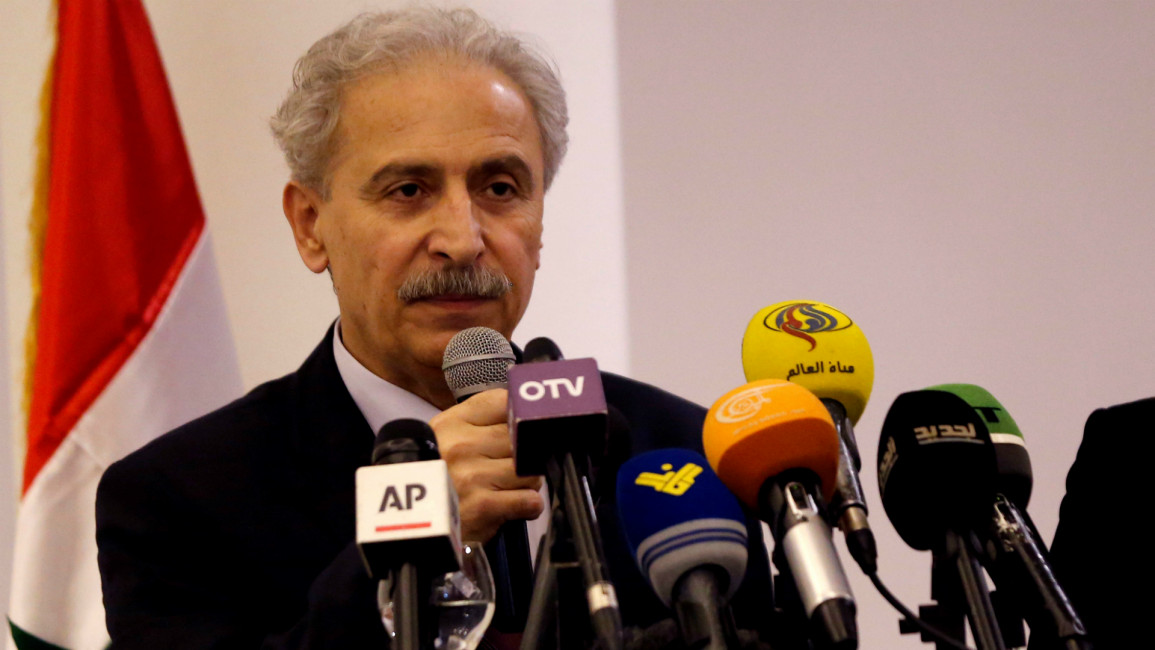Syrian Alawite 'dissident' defends Russian intervention, declares war over
Speaking on Friday, Louay Hussein, who is a member of Syrian President Bashar al-Assad's minority Alawite sect, announced the formation of the new political alliance, the National Bloc, which appears to be looking to play a role in any possible political transition in the war-torn country.
The bloc brings together a number of non-mainstream Syrian opposition figures, who have in the past championed an agenda focusing on a 'solution made in Syria' to the conflict, shunning the overthrow of the Assad regime as demanded by the majority of Syria's mainstream opposition. Critics have dismissed many such dissidents as naive at best, and regime-sanctioned infiltrators at worst.
Speaking in a press conference at a hotel in Beirut, Hussein said he will lead the bloc, which believes that the war between the regime and the Syrian opposition is now "over" and that efforts need to focus on a post-war phase.
"The armed conflict for the state is over," the 57-year-old alleged, despite ongoing hostilities and vast swathes of Syria still outside government control, adding that foreign governments have cut support to rebels fighting to overthrow Assad.
"There are no longer foreign states saying they support certain groups to topple the regime by force. We are going back towards a political struggle," he added.
 |
Controversially, Hussein, who fled Syria in 2015, defended Russia's brutal intervention alongside the Assad regime, saying Moscow's involvement in the war has given him new confidence. |  |
Controversially, Hussein, who fled Syria in 2015, defended Russia's brutal intervention alongside the Assad regime, saying Moscow's involvement in the war has given him new confidence.
"We now have an international entity acting as a guarantor, Russia," he said, calling for diplomatic efforts that "might contribute to ending the crisis."
Hussein's party emerged in late January, after he travelled to Moscow for talks with opposition figures recognised by Assad's regime.
Russia, in backing the new opposition group, appears to be facilitating an effort to form an 'alternative opposition', some observers say with the intention to pressure mainstream anti-regime groups.
Russian ambassador to Beirut Alexander Zasypkin, present at the launch, told The New Arab that his country backs "the participation of a delegation from the National Bloc in the upcoming Geneva talks", adding that the party represents "a large segment of Syrians living in Syria".
But it appears that the new bloc may have trouble gaining recognition from other prominent Syrian opposition groups, such as the National Coalition and the Saudi-backed High Negotiations Committee.
Turkey-based the National Coalition said it was sceptical over about the National Bloc.
"We do not yet have the full details about them, but I do not believe they are of great prominence," coalition member Nasser al-Hariri told The New Arab.
The UN is set to resume Syria peace talks in Geneva on February 20. It is unclear whether the National Bloc will be invited.
The Syrian conflict began when the Baath regime, in power since 1963 and led by President Bashar al-Assad, responded with military force to peaceful protests demanding democratic reforms during the Arab Spring wave of uprisings, triggering an armed rebellion fuelled by mass defections from the Syrian army.
According to independent monitors, hundreds of thousands of civilians have been killed in the war, mostly by the regime and its powerful allies, and millions have been displaced both inside and outside of Syria.
The brutal tactics pursued mainly by the regime, which have included the use of chemical weapons, sieges, mass executions and torture against civilians have led to war crimes investigations.



